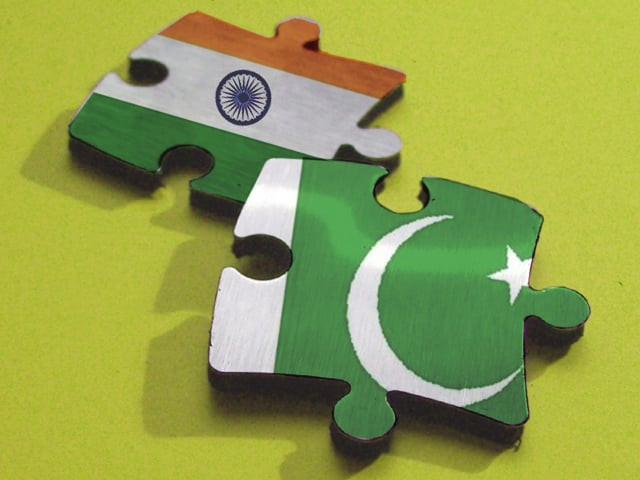President Zardari’s regional diagnosis
President Zardari wants "a constructive, sustained and result-oriented process of engagement with India."

He stressed the need: 1) for strong parliaments to play a crucial role in ushering in reforms and ensuring efficiency and transparency of the governing structure; 2) to fight against drugs and terrorism; 3) to fight extremism of the sort rampant in Pakistan to which he made special reference; 4) to lead efforts for resolving complex issues by protecting political liberties, human freedoms and the rule of law to promote regional peace and security; 5) to work towards greater people-to-people contacts among countries in the region; and 6) to ensure food security in the region.
Specifically about Pakistan-India relations, the president said that Pakistan wanted “a constructive, sustained and result-oriented process of engagement with India” and reiterated his call “for the two countries to make determined efforts for friendly, cooperative and good neighbourly relations”, while expressing satisfaction that the resumed dialogue between the two countries was progressing. He then delivered the crux of the India-specific message: “finding amicable and just solutions to all outstanding issues is important for Pakistan and India to ensure lasting peace and stability in the region”.
The Saarc Charter to which President Zardari made reference to has been ignored by South Asian states since 1985 when it was first agreed upon. No one other than India and Pakistan are to blame for this missed opportunity of pushing the not-so-successful nation-state towards the more suitable market state as pledged in the “common market” concept in the Charter. Fighting proxy and asymmetrical wars has delayed the progress towards the “connectivities” promised by the various Saarc summits to lay the groundwork for the unified South Asian market to raise regional trade from a meagre two per cent to at least what Asean has managed in Southeast Asia: 20 per cent.
The onus of change is mostly on Pakistan. Sri Lanka has sorted out its decade-long trouble with terrorism by talking to India and reaching with it a mutually agreeable understanding of the problem. Bangladesh, while awaiting an acceptable solution of its water issues and border-enclave problems with India, has moved ahead and invited Indian investments and permitted road connectivity to India. Pakistan has lagged behind on the agreements it signed at Saarc and has made most of its progress conditional to progress on dispute-resolution, while achieving nothing in resolving outstanding bilateral problems.
In the past four years, thaw has occurred in the Indo-Pakistan equation, mainly through a convergence to the free trade pledged in the Saarc resolutions. More progress has been made in these years than ever before as marked by the agreement to allow cross-border investment instead of terrorism. There is also the softening of the visa regime. Cross-border mixing of people divests hostile nationalisms of their exaggerations and encourages the trust needed for bilateral trade.
Parliaments in India and Pakistan have enjoyed cordial relations and they remain — in addition to interaction among the apex Court judges on both sides — the most agreeable palliative to strained relations between the two armies. Before defusing extremism of action, one must cultivate the expression of tolerance at the verbal level. Parliamentarians have defied the negative imagery of the media in India and Pakistan to speak of peace and cooperation, while focusing on internal reform rather than on finger-pointing to the neighbour’s shortcomings.
Published in The Express Tribune, November 6th, 2012.















COMMENTS
Comments are moderated and generally will be posted if they are on-topic and not abusive.
For more information, please see our Comments FAQ